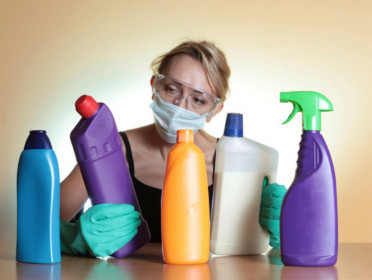We’ve all heard about the incredible amount of toxins that we are exposed to everyday. What you may not be aware of is that most people choose to take in many, if not most, of these toxins, albeit they are unaware they are doing so.
The CDC estimates that the average American contains 116 synthetic compounds in his or her body. Some are from toxins in the environment (pollution), but many come from the foods we eat and the products we exposure our bodies to every day. Here are some examples:
What we Eat and Drink
US consumers average 70 daily exposures to residues of pesticides, herbicides and insecticides every day from the foods and drinks that they consume. The average person in the US consumes about 1 gallon of pesticides in one year on the foods that they eat. These exposures have been linked to headache, depression, memory decline, fatigue, nausea mood swings, asthma, eczema, irritable bowel syndrome, rhinitis (nasal inflammation), Parkinson’s disease, cancer, immune suppression, nervous system disorders, reproductive changes and disruption of hormones
What we Put On/In Our Bodies
In addition, many people unknowingly bath themselves in chemicals everyday with such things as deodorant, shampoos, conditioners, hair spray and other hair care products, make-up, tooth-paste, perfume, cleaning agents, lotions and a multitude of other personal care products.
Here is a list of just some common chemicals in body care products:
- Aluminum – is a metal, which is used in antiperspirants to help block the sweat from escaping the pores. Aluminum has been linked to breast cancer in women and has also been linked to an increased risk of Alzheimer’s disease.
- Parabens – are suspected of disrupting the body’s delicate hormonal balance. This can lead to things including early puberty in children and an increased risk of hormonal cancers – including breast cancer. Exposure has also been linked to birth defects and organ toxicity.
- Propylene Glycol – is a petroleum based chemical that is used to soften cosmetic products. In large quantities, studies have shown that it can cause damage to the central nervous system, liver and heart. It is found in many products and many processed foods.
- Fragrance/perfume – can legally hide hundreds of chemicals. One of these is phthalates, which have been linked to a variety of health issues. High phthalate blood and urine levels in women of child bearing age have been linked to a higher risk of birth defects. This suggests that phthalates may disrupt hormone receptors as well as increase the likelihood of cell mutation.
- Triclosan – is classified as a pesticide by the FDA, and a probable carcinogen by the EPA.
- BHT – (Butylated Hydroxytoluene) in addition to causing hyperactivity in children, BHT (and BHA) are considered carcinogens by the US Department of Health and Human Services. BHT has been shown to be linked to cancer, developmental toxicity, allergies, neurotoxicity, endocrine disruption, biochemical or cellular level change.
Minimizing your Exposure
First of all, take a deep breath. Take another one. That’s a good start. In fact, you should start every day by taking 5-10 deep breaths.
From a food standpoint, organic is better; eat organic produce and organically raised flesh protein as often as possible. If that isn’t an option, use the guidelines set forth by the Environmental Working Group to only eat the Dirty Dozen if you can get them organic, and eat the Clean 15 freely.
Personal care products are a bit tougher, as manufactures are no required to list everything that is in the product on the label (and they don’t). One of the best resources out there is the Skin Deep website. Here you can find out what is actually in the products you use, and if changes need to be made, alternatives that you can buy.
You have a great deal of control over the amount and kinds of toxins you are exposed to on a daily basis. Take control.
It is also a great idea to perform a specific detoxification program at least every 3 months to assist your body in eliminating the toxins that have already found their way into your body.


